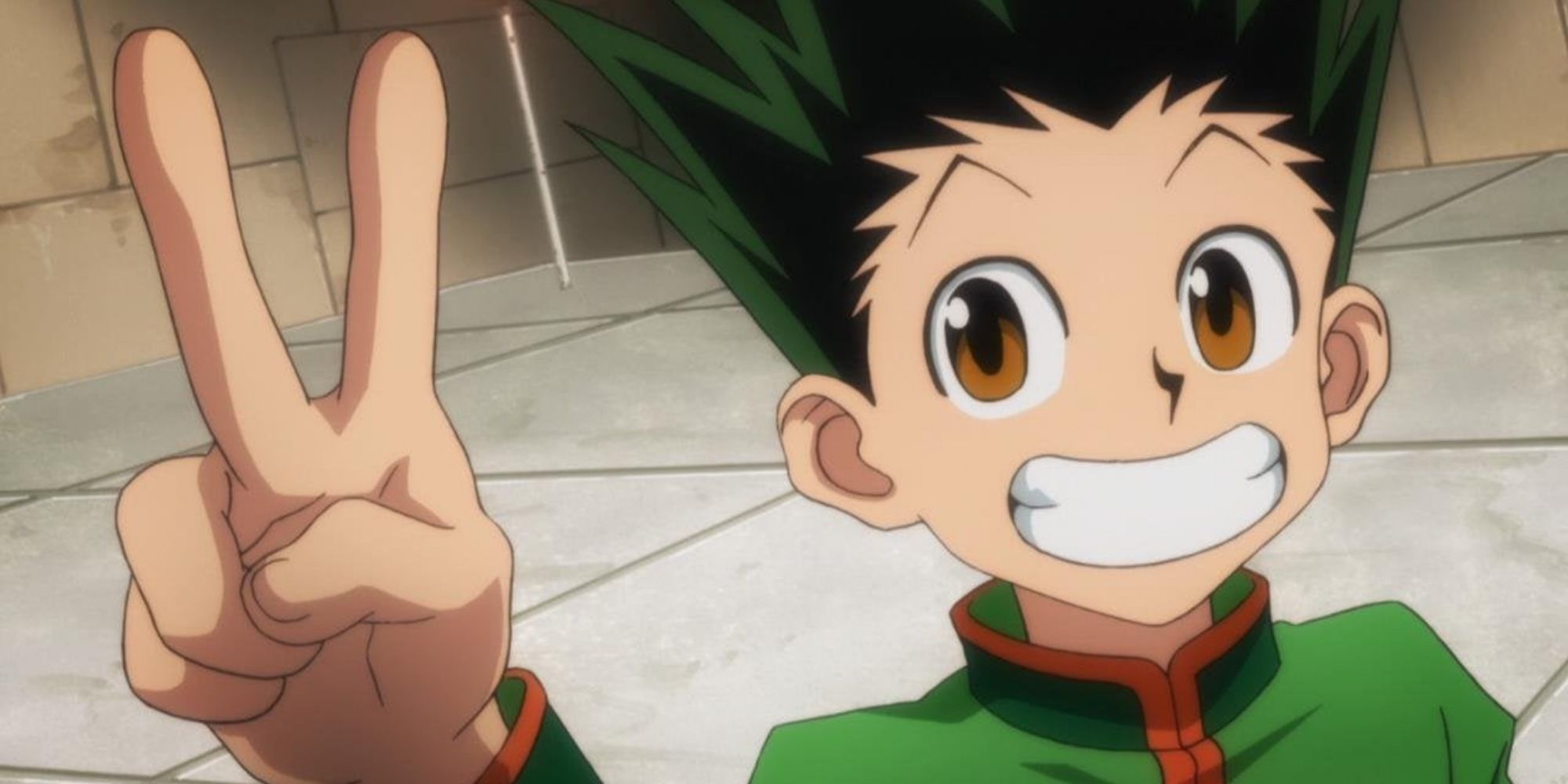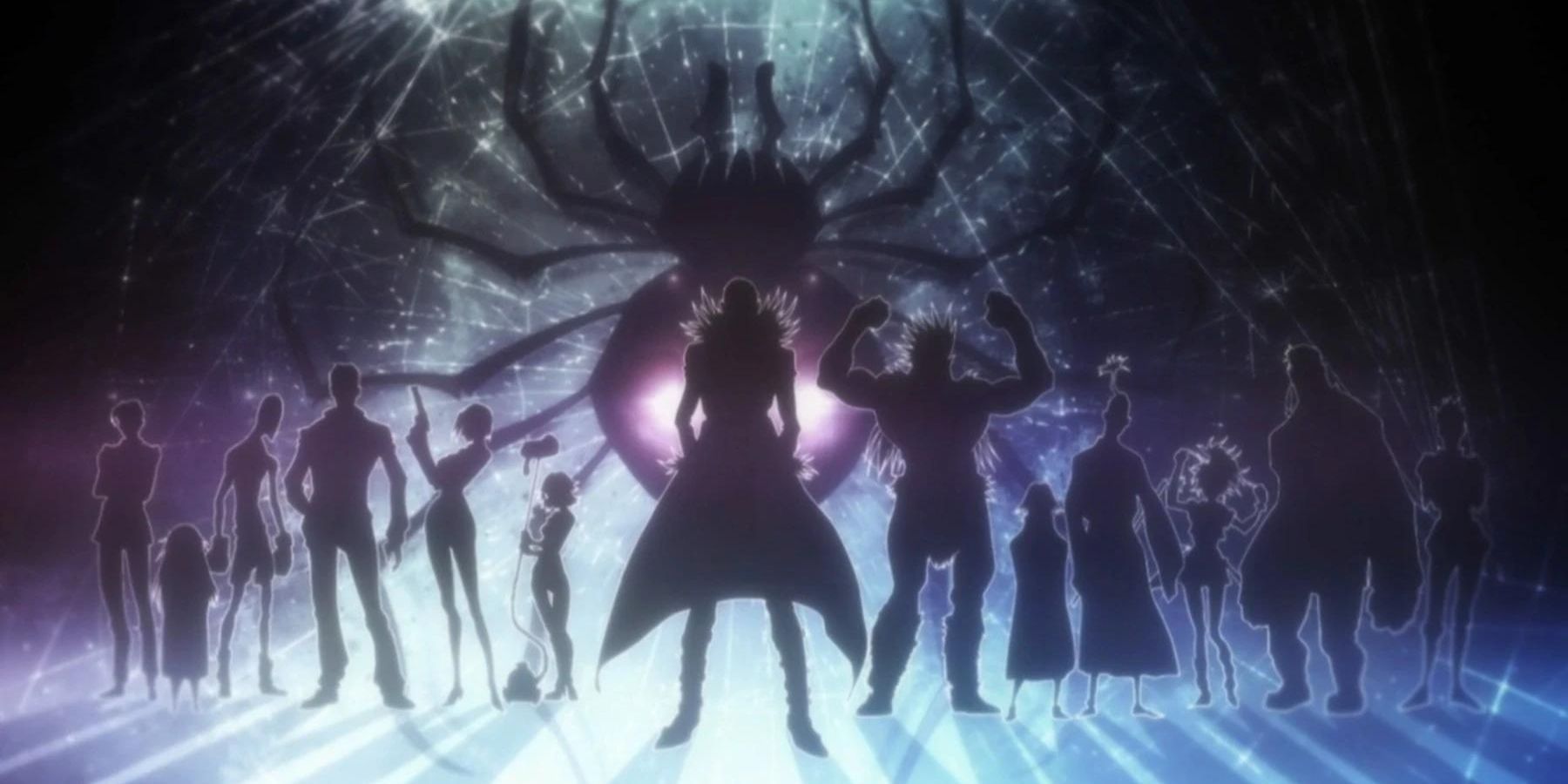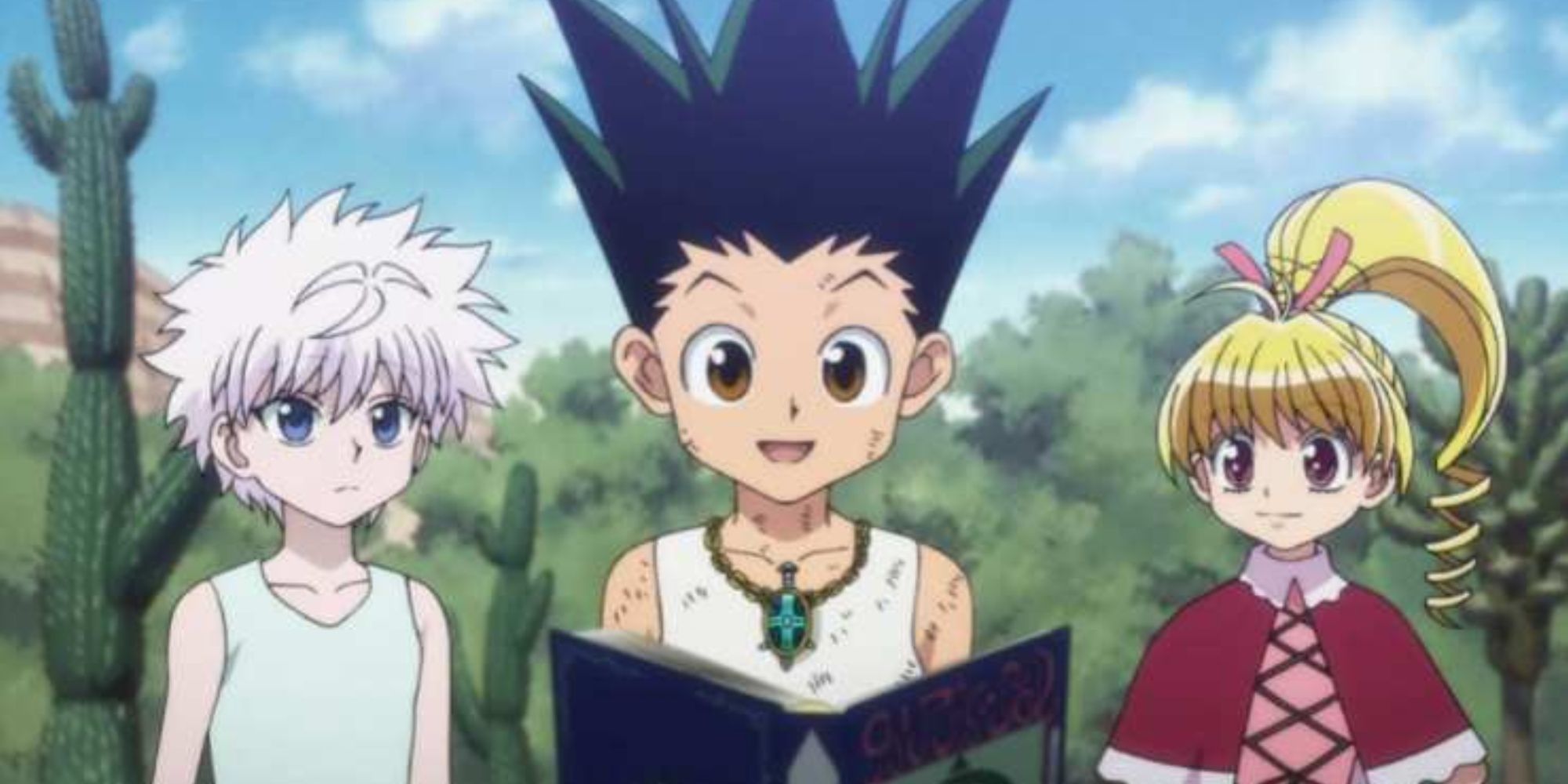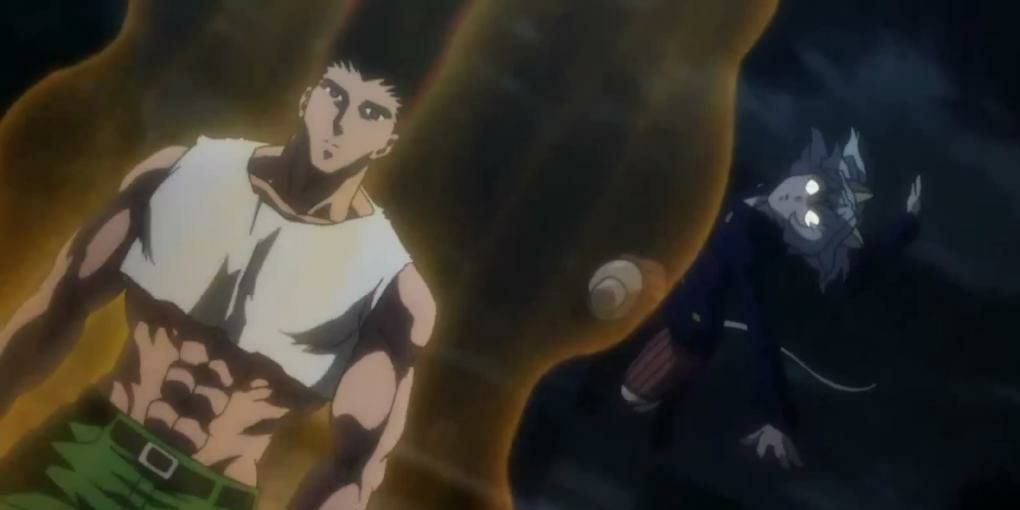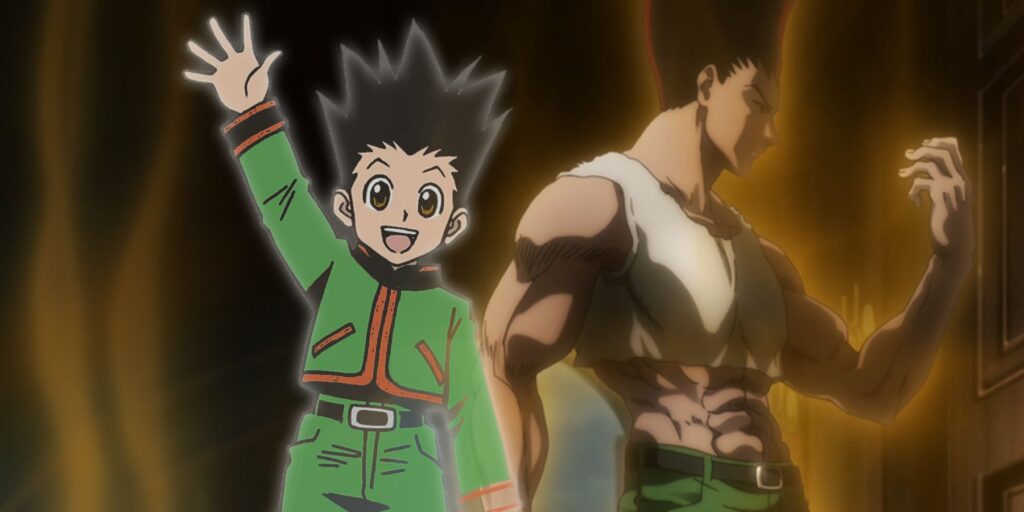
Highlights
- Gon’s descent into darkness and revenge is a coherent conclusion to his character’s experiences, as his moral compass is flexible and his actions are driven by self-interest.
- Gon’s moral ambiguity is evident in his judgment of actions based on how they benefit or harm him and his friends, rather than adhering to a fixed sense of good and bad.
- Gon’s increasing violence and disregard for the consequences of his actions is showcased in the Greed Island arc, culminating in his revenge-driven spiral in the Chimera Ant arc, where he behaves as a villain in his desperation to save Kite.
When Hunter x Hunter protagonist Gon Freecs starts off his journey to become a hunter, he is a sweet twelve-year-old that follows the shounen protagonist trope down to the T. This has many fans surprised when a trope subversion sees his character arc end with him sacrificing everything for revenge, but though this development takes a sharp turn from who Gon was when first introduced, his descent into darkness was foreshadowed by many subtle elements in the Hunter x Hunter story, and is an overall coherent conclusion to his character’s experiences.
Co-protagonists Gon and Killua are both innocent and good at heart, but they are placed in a world that is not. The Hunter x Hunter series is known for its dark and gritty setting and in not shying away from graphic depictions of violence, the narrative paints a grim reality where death isn’t foreign, and all actions have consequences. Gon isn’t by any means a bad child, but he is also still developing and as can be expected from one his age, he is selfish and self-centered in his interactions with his surroundings. His perception of good and bad aren’t yet set in stone so as the series progresses and he faces situations that are increasingly tough at his young age, he starts to develop ambiguous and inconsistent morals.
Hunter X Hunter: Is The Chimera Ant Arc Underrated?
The Chimera Ant Arc is referred to by some fans as one of the worst arcs in all of Hunter X Hunter. Does it deserve the hate?
Gon’s Absent Moral Compass
Hunter x Hunter initially presents Gon as a bright and excitable child who is trying to find his father. The narrative setup is that of a classical shounen series, so it instantly endears him to the reader, creating the illusion that Gon will be the standard hero protagonist. As it’s what Manga fans expect from the trope, it is quite easy to confuse his childlike enthusiasm with goodness, but as the story progresses it becomes ever more evident that his moral compass is flexible to the point of being near absent.
Moreso than good, his overwhelming character trait is curiosity, allowing him to keep up a steady stream of energy and passion when engaging with the world that surrounds him. The flip side to this curiosity is that when nothing manages to catch his interest, he feels under stimulated and bored. He eventually finds a counter to this boredom in the fear and adrenaline associated with nen combat, but this starts him on a path that leads to increasingly violent situations and his morals take the hit by developing into an more gray territory.
Good And Bad As A Reflection of Self-Interest
Gon’s moral ambiguity is showcased quite clearly when Yorknew City sculptor Zepile states his surprise at Gon’s disregard for the immorality of counterfeit techniques. This appears innocent enough as the dynamic is presented as positive, but it shows how he judges actions based on whether they interest him, benefit him, or harm him or his friends.
Gon’s disdain for the Phantom Troupe further proves this point as it’s reasonable to assume that, had Gon’s initial meeting with them been under more neutral circumstances, he might have been open to joining their ranks. His prior encounters with Hisoka suggest that he doesn’t automatically dismiss individuals of questionable morality, and his double standard is only due to the Phantom Troupe’s actions having directly harmed someone he holds dear. Nonetheless, in this arc Gon’s actions are still primarily good and he and Killua serve as the moral counterpart to Kurapika’s desire for revenge.
Gon’s Increasing Violence in The Greed Island Arc
The Hunter x Hunter Greed Island isekai was set up by Ging as a training ground for the real world of nen. The arc features very dark themes, but though the danger and suffering of the people in this setting are real, the design of this isekai world helps attribute a light-hearted and consequence-free feel to events that would otherwise pass as tragic. Nonetheless, Gon’s actions against Genthru not only very nearly killed him, but would have, had it not been for Killua’s decision to heal him instead of himself. This instance showcases Killua’s moral growth, but on the flip side, Gon’s disregard for the effects of his attacks and the nonchalant attitude towards his friends’ injuries marks an opposite trend that comes full circle during the Chimera Ant arc.
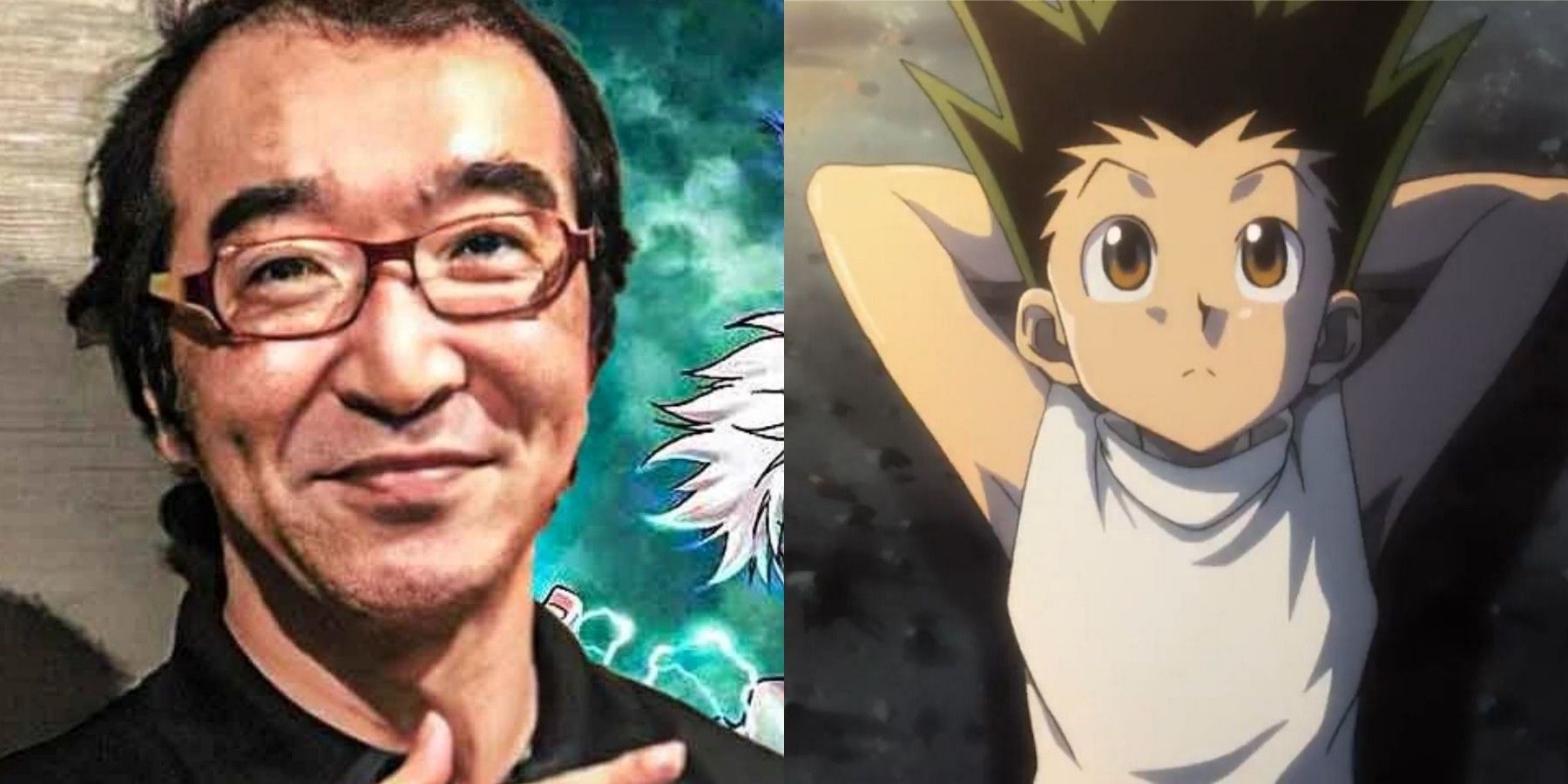
Hunter x Hunter’s Ending & What It Means For The Series
How will Hunter x Hunter move forward now that fans finally have an idea of what the series’ ending will look like?
Gon’s Revenge in The Chimera Ant Arc
When Gon and Killua meet up with Kite upon leaving Greed Island, the feel of the world takes a drastic turn towards darkness. For the first time in his life, Gon is faced with the full consequences of his choices and when his decision to disregard orders leads to Kite’s death, he is unable to handle the guilt. This leads him on a downward revenge spiral against the very strong Neferpitou and in his futile desperation to get Kite healed, he completely loses his already fragile grip on morality, behaving as much as a villain as the antagonists he is fighting against.
Gon is in denial as he convinces himself that Kite can be healed, and as he cares about nothing else, he goes so far as to mistreat Killua and threaten the life of the innocent Komugi while Neferpitou is saving her. When it eventually becomes clear to him that the damage to Kite cannot be reversed, he finally snaps and sacrifices everything in pure rage and hatred, with the sole intent of obtaining the power to kill Pitou. His narrow-focused desire to fix his irreparable mistake ends up transforming him into a force of evil in a display of selfishness that closely resembles what one would expect from a child throwing a temper tantrum, and in the end, it is the ever-loyal Killua that is left to fix the situation and find a way to restore Gon to life.
Hunter x Hunter may have started off as a more stock standard shounen, but as the story progressed Togashi developed the narrative into more seinen themes. Gon’s arc reflects this and as opposed to limiting his representation to the standard trope, Togashi realistically explores how a twelve-year-old may react to being inserted in an adult context. Due to Togashi’s health issues, it is unlikely for the Manga to see Gon’s return, but though there are some threads left open, his character arc is one of the most satisfying in its coherent resolution to his narrative.
Hunter x Hunter is now available to stream on Crunchyroll.
